 It’s the time of the year when many holiday homeowners take a deep breath. Maybe enjoy their first weekend in a while free from back to back bookings and challenging changeovers. Or even stay in the holiday property themselves. Sound familiar? Holiday homes across the country will have welcomed hoards of people through their doors during the peak season. If you self-manage that not only leaves you feeling tired but can also take its toll on your property.
It’s the time of the year when many holiday homeowners take a deep breath. Maybe enjoy their first weekend in a while free from back to back bookings and challenging changeovers. Or even stay in the holiday property themselves. Sound familiar? Holiday homes across the country will have welcomed hoards of people through their doors during the peak season. If you self-manage that not only leaves you feeling tired but can also take its toll on your property.
For that reason, there’s no better time of the year than now to take stock of any wear and tear. Identify what needs replacing or maintaining. Then get to work restoring it to the fine condition it was in at the start of the peak season.
Here are a few Autumn property maintenance tips for your holiday home.
Prepare your property maintenance checklist
It’s inevitable that any holiday home will experience some wear and tear over the peak months of the year. Whilst a wobbly door handle or chair may seem innocuous, the smallest issues can cause accidents if not addessed. Make up a property maintenance checklist of these small issues and tackle them before your next guests arrive.
Now is a great time to go through the entire property, ensuring that all rooms are in full working order. And do the level of accommodation you’re wanting to provide guests with justice. Whilst many holiday homes will have a checklist for external cleaners to follow during changeover, it’s worth making your maintenance checklist more thorough and in-depth to ensure nothing is missed.
Work through each room, ensuring that each item is ticked off your list.
Top tips to revive the interior of your holiday home
- Consider having your carpets professionally cleaned; it can give a tired post-season room a real boost.
- If you’re hoovering yourself, ensure your vacuum cleaner has a clean HEPA filter. This can reduce allergy causing carpet mites and ensure more of those dog hairs are removed (if your accommodation is dog friendly!).
- Steam cleaning upholsteries such as curtains, sofas and alike every six months can revive their appearance and avoid the need for replacing them.
- Rubbing a teaspoon of lemon oil on a glass shower door each month can cause water to bead up and roll off.
- Ever placed your cushions or pillows in the freezer? Probably not, but it can be a great way of killing off any mites that may have made their way into your holiday home during the summer. Simply leave them in there for 48 hours and they should be gone!
Readying your holiday home for harsher weather
The great British summer can sometimes be somewhat unpredictable, the winter months are more reliable with higher levels of wind, rain and cooling temperatures guaranteed. Your maintenance checks should extend to the exterior of your property and the surrounding land / gardens.
For a full breakdown of items that could and should be on your external checklist please have a look at our previous blog posts here:
Top tips to revive the exterior of your holiday home
- If you’re looking for a deep and effective clean, there’s nothing more effective than a stiff brush. Target paths, decking and other areas in which slippery algae, dirt and lichen can gather and cause accidents as well as looking unsightly.
- Remove leaves and debris on a regular basis. This will reduce the risk of flooding should they block nearby drains and other areas in which winter water needs to escape.
- When was the last time your windows were washed? It can sometimes be left on the to-do list during peak season, so make sure they’re spick and span, and that you also check paintwork or the surrounds of the window to ensure no remedial work is currently required.
- Regularly washing your exterior paintwork will give it a real lift and remove dirt containing corrosive pollutants which in turn can increase the life of your paint.
- Outside lighting can really lift the look of your holiday home, as well as being important for your guest’s safety and security when the nights pull in. Replace any corroded fittings and clean regularly if these are already fitted.
Property maintenance is an essential aspect for holiday homeowners fulfilling their duty of care. Keeping on top of it will ensure you achieve the best returns on your holiday home. A well maintained property will also reduce the risks of holiday home insurance claims.
Boshers offer specialist holiday home insurance to owners across the UK. Need an insurance quote for your holiday let? Give us a call on 01237 429444.



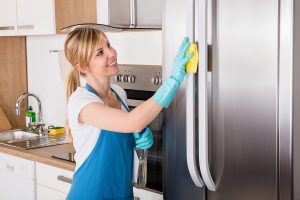
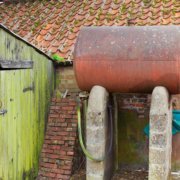
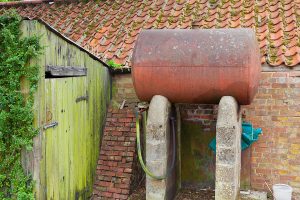
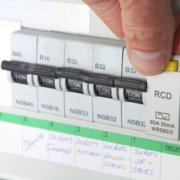
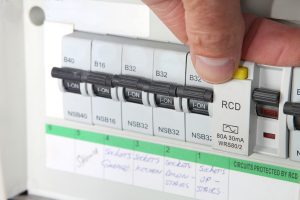 There are some items in modern life we just couldn’t do without, whether in the home or whilst on holiday; kettles, coffee machines, toasters, microwaves, TV’s, Hi-Fi’s and mobile devices. These all play a central part of our days, as they will be for those visiting your
There are some items in modern life we just couldn’t do without, whether in the home or whilst on holiday; kettles, coffee machines, toasters, microwaves, TV’s, Hi-Fi’s and mobile devices. These all play a central part of our days, as they will be for those visiting your 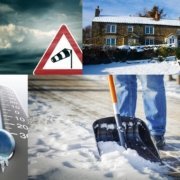
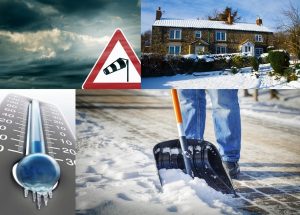 These essential
These essential 
 Preventing damage from water leaks
Preventing damage from water leaks
 The main letting season has come to an end and despite strong shoulder month bookings, you might just have a little more time on your hands than you had from May through to October. Once you’ve had a chance to relax, reflect and refresh, now could be a great time to make sure your
The main letting season has come to an end and despite strong shoulder month bookings, you might just have a little more time on your hands than you had from May through to October. Once you’ve had a chance to relax, reflect and refresh, now could be a great time to make sure your 
 Take a look around your home; what is it that makes it unique and yours, rather than just any old property? Whilst some will say memories, many will say the stamp they’ve put on the place; the extra touches they’ve made, or the changes they’ve crafted.
Take a look around your home; what is it that makes it unique and yours, rather than just any old property? Whilst some will say memories, many will say the stamp they’ve put on the place; the extra touches they’ve made, or the changes they’ve crafted.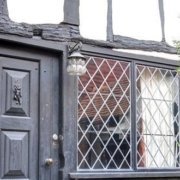
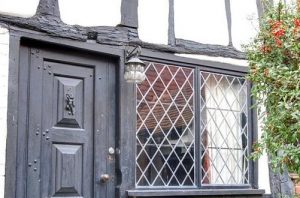 As a nation we love our history and heritage; there’s a reason National Trust properties are some of the most popular venues to visit across the country no matter what the season. A recent survey by Historic England has now revealed that the owners of listed buildings are also proud with their own stake in a yester year.
As a nation we love our history and heritage; there’s a reason National Trust properties are some of the most popular venues to visit across the country no matter what the season. A recent survey by Historic England has now revealed that the owners of listed buildings are also proud with their own stake in a yester year.
 During the busy summer months, it’s common to have a small time frame for your
During the busy summer months, it’s common to have a small time frame for your